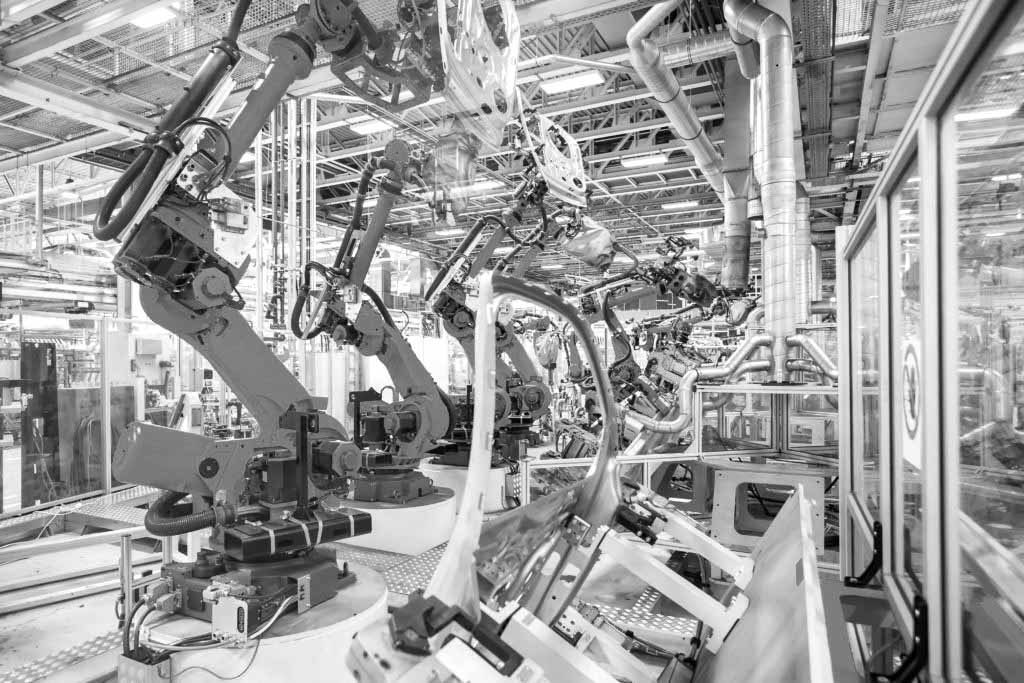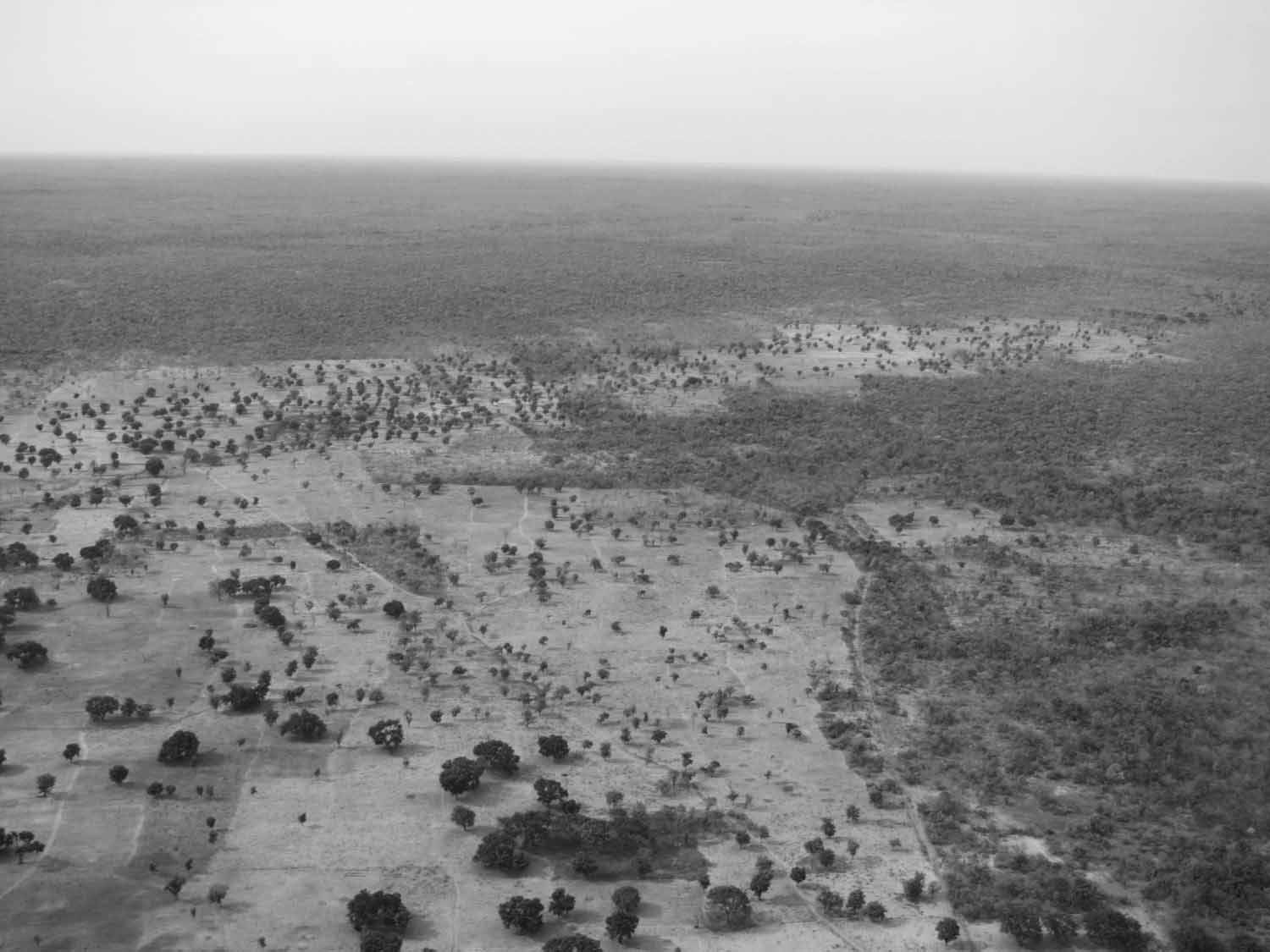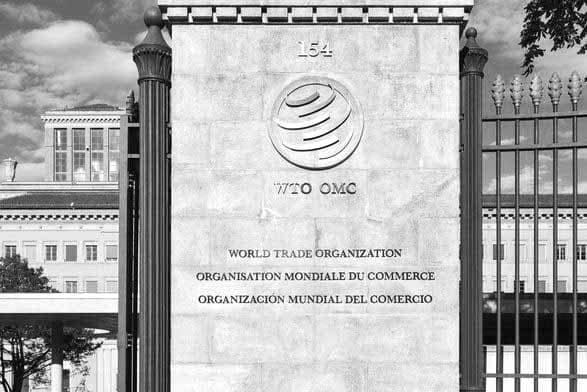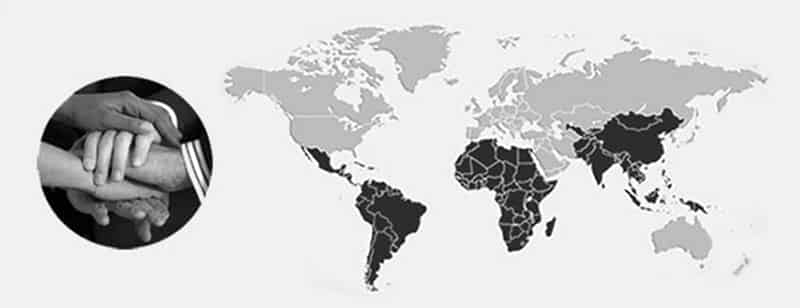Speech by Mwalimu Julius K. Nyerere at the Geneva International Institute of International Studies: 18 January 1990
The Developing Countries and the World of Tomorrow, Geneva, 1990
Dear Chairman; Your Dignitaries; Ladies and gentlemen.
We live in a divided world. So far the division that has been carefully considered is the division between East and West. This division is the division of Europe, and the so-called World War I and II which was the war of Europe; but Europe is so important in the world that the

European wars did spread all over the world and affected all nations. Thus, although the East and West divisions have a more European focus so much so that until recently the symbol of this division was the Berlin wall, it is still considered to be a universal division. Considering the European power and its history, it is a very dangerous division. For this reason alone, I welcome the current indications that the divisions between East and West and its confrontations are likely to end.
I would like to welcome the possibility of ending the division between East and West for the sole reason that it will lead us to take a closer look at the fundamental and definite division of the world. This is the economic divide between the North and the South, the monopoly on the global economy, politics, and the military power they have in the North.
Economically the Northern countries are rich, powerful and industrialized. They are organized – in the Group of Seven, in the Organization for Economic Co-operation and Development (O.E.C.D), in the European Union and so on. Its members have a veto in the UN Security Council; only China from the Southern region has such a vote, and that is a historic mistake that resulted from the second world war. The Northern States controls the International Monetary Fund (IMF), the World Bank, and other powerful international institutions where votes are cast on the basis of wealth.
The Southern Hemisphere, on the other hand, is similar in that it is less developed, less powerful in influencing the global economy and – excluding fewer countries – in poverty.
Despite being highly dependent on commodity prices, Southern countries cannot set these prices and cannot affect them as individual countries; these prices are set by the North states. In developing countries that rely heavily on importing capital and basic necessities, they cannot fix the prices of such products neither; these prices are also set by the North. Purchase prices and sales prices are all set by the North states.
Despite the need for capital for development, Southern countries export capital because of interest rates and international exchange rates set by the North. And even in the current century where military power has been replaced by economic power as an issue of governance, Southern countries can be invaded, insurgency is planned and funded by Northern countries, and constant threats to their existence and integrity. I have to mention Vietnam, Grenada, Libya, Nicaragua, Angola, Cuba, The Comoro Islands and Panama to illustrate this point. Can anyone imagine any Southern nation invading Luxembourg, or bombing the White House to kill those inside, or plotting the assassination of a European leader, or financing such issues?
This is the division of power. And as the European writer puts it:
Whatever happens we have
Big guns, and they have nothing.
This domination in all spheres is currently maintained and protected through the work of international economic systems and procedures; these have been and have been developed by the Northern countries to meet their needs and requirements, which is why the Northern countries protect them in every way. But these systems and mechanisms help to perpetuate the underdevelopment of the Southern Hemisphere and its after effects – Poverty, Ignorance, Malnutrition and Disease.

At present, ten years before the 21st century, for millions of people in the South, hunger is a reality, and basic education and health care are in short supply. While the developed North speaks of a ‘new post-industrial era’ in the less developed Southern states even the industrial era for the most part has not begun. For in the Southern developing countries – and especially in Africa – the basic communication and social system that is the basis of great productivity and scientific development, is scarce or nonexistent, and the capital needed to overcome these shortcomings does not exist.
A nation that is deeply divided is considered to be largely unstable. For there is no equality, and in the end there will be a confrontation between the haves and the have-nots that can only be controlled by use of force alone. This is the same situation in the context of the relationship of the North and South today.
The Need for System Change
I suggest that injustice, inequality, and the long-term continuation of the current state of the global economic situation, require major changes. In addition what I see is that these changes are urgently needed, and they are needed for all nations and all people, North and South, developed or underdeveloped at present. In hindsight, they all have the same desire to ensure that change takes place that will lead the world to a state of equality and a just system in which nations and individuals will co-operate and interact economically, politically and socially.
No nation or group of nations alone can bring about these needed changes; it can only be achieved through an agreement between the North and the South. Despite its current efforts to bring about a new global economic governance of its own through the Uruguay Round, Europe alone cannot bring about world stability. For true stability is the fruit of justice; no system planted for the benefit of the few can bring about productivity or stability now or in the future.
Since the first and foremost victim of this current exploitation system are developing nations, they must be aware of the need for fundamental change. And since for them it is a matter of urgency they have a special responsibility to work for change by coming together even though they are lacking power.
Changes that will lead to poverty eradication are now possible. The world has the potential and the understanding of how to eliminate malnutrition and hunger, preventable diseases, ignorance, and despair. There is no reason to lose dignity caused by extreme poverty in the ‘world of tomorrow.’
The point, in any case, is not that we should change, but whether humanity is determined enough to try conquering the system and realize the direction that change will take us. From period to period the world changes through the advancement of Science and Technology, and through empowered institutions. This process is unpredictable, unstoppable, and currently very fast.
In the meantime, the process of change is taking place in large part through something called ‘invisible market forces’. Continuation of this situation is the norm in the North, and it is deliberately – and largely successful – to spread to the South. Barriers to this system introduced by national governments or humanitarian organizations are widely criticized. In fact, economically and politically – and sometimes even militarily – power is directed at small nations that are striving to control or direct the prospect of inevitable change for the benefit of their own people.
Its alternative still exists. It is up to the nations and peoples of the world to work together to try to create systems – even if they do not meet – through which the will of the people will be given priority over the methods of making money through the exploitation of depleted resources and knowledge.
Science and Technology
So for example: innovations and advances in science and technology would allow the problems of global population growth to be addressed. They could – now or in the future – allow us to use the sun and the wind and the waves of the sea as a substitute for the energy currently generated from deforestation, burning of coal or oil, or the release of nuclear waste that has a global impact for centuries to come. Science and technology would be used to create affordable scientific systems so that women in the Third World could reduce some of their burdens,

at the same time increasing their productive capacity and living conditions. But the market cannot allow such studies to take place; for it has no immediate and direct benefit.
Reliance on market power means that scientific and technological advances will be directed at areas that will increase the benefits of wealth and power for the ruling Northern states against the poorer Southern nations. And as research and investment increase from the North, the more it will be able to do it, the more its initial profits increase and the larger profits in the ‘world of tomorrow’.
Until recently the two norms have been impeding this initial start. First, it was common for scientific advances to be open to use by all other scientists. Second, governments were able to use their own resources to control national investment and thus provide direction for scientific development studies in their own countries. These two approaches to things, however, are under siege. Scientific knowledge is being privatized very rapidly in the North, and removed from the public sphere; this greatly benefits those ‘who were the first in this field’ – that is, the North. Even free-collected seeds from the South are researched and then patented – and sold to Southern countries. Through claims made under the Trade-Related Aspects of Intellectual Property Rights (TRIPs) and Trade-Related Investment Measures (TRIMs) and parts of the Uruguay Road, North seeks to undermine the existing power in developing countries to promote their own scientific and technological advances, or to influence its direction. As these claims are increasingly disputed by Southerners negotiating and working together, the United States, puts pressure in terms of capitals, making their claims about copyright rights a criterion for other economic agreements. Thailand and Brazil, India, and South Korea are among developing countries that have experienced such pressure so far. In practice, the North is trying to impose it on the South – and not negotiate – on the ‘world of tomorrow’.
Transfer Capital Against Development
South’s greatest need is development – the fight against poverty and dependence. For all these needs, Southern countries need capital – for Science and Technology, for conditions that will promote environmental growth, for education, communication, and for investment. Poor developing countries, by the way, have little capital; To satisfy their own development and growth efforts it is common for them to buy foreign capital in one way or another. They were doing this in the sixties and seventies.
Except in the eighties, the structure changed; it is currently the poorest Southern states that are transferring large capital to the rich of the North. These have been done through different systems. So, for example, poor trade dynamics between commodities and manufactured goods has meant a huge loss for many Southern countries, which rely heavily on exporting basic commodities to earn revenue from exports. There is one estimate that shows the losses of developing countries in the sub-Saharan African region of $ 42 billion between 1980 and 1987! This is money lost from the world’s poorest countries.
What could not be concealed through the ‘market-driven prices’ works is the eighty-year transfer from South to North through the cost of servicing credit. Including long-term and short-term loans, World Bank figures show a total transfer of US $ 164 billion over five years from 1984-1988. The total amount of this transfer in any one year is not rated entirely by the amount that southern countries have borrowed in the last five years. For as the Northern Hemisphere struggles to combat domestic inflation in their countries by raising interest rates, they are increasing the obligation to repay the debt of the debtors. With a one-percent increase in interest rates, the debt service obligations of 17 heavily indebted countries increase by $ 5 billion.
Third, the instability of the currency exchange rates in the Northern countries, which serve as a global currency exchange rate, causes significant losses to developing countries, and the importance of this varies according to their trade and debt structures. When I visited Indonesia in November 1989, I was told that the country had, in the last twelve months, made a gross loss of one and a half billion US dollars as a result of fluctuations in international exchange rates.
All these transfers from South to North are done through the work of systems and institutions. The issue of ethics is not embedded in systems and institutions because these systems are not human and therefore cannot sin. Righteous people can live and even participate, in this robbery from the rich against the poor without even being perceived as doing something wrong, while at the same time being disgusted and touched about the persistent poverty and injustice in the world.
But immorality is there, in the inequality and theft of value from the poor. A sustainable and tolerable world of tomorrow demands an end to this sin by changing the systems and institutions that serve as instruments of robbery.
International Systems and Trends
The ‘Bretton Woods’ Institute and the General Agreement on Tariffs and Trade (GATT) are one of the international instruments of the developed world used to transfer the suspected capital from the poor to the rich, or to impose further restrictions on developing countries’ efforts in getting rid of their poverty.
So, for example, the ‘Bretton Woods’ institutions, which is made for the aim of promoting global stability and prosperity, they are now the recipients of raw capital exports from the South. Moreover, – from the South’s perspective – they seem to be a strong Northern tool for controlling developing countries, as much of the voting power is used for political and ideological reasons.
The General Agreement on Taxation and Trade (GATT) has a distinct institutional structure, but in practice, it is also used to serve the rich and the prosperous. Its declared purpose is to promote ‘free trade’ and loosening of restrictions’ based on the economic theory of profit from the comparison of being the first in a particular field (competitive advantage). I do not compete with that theory – if it is applied to the same

people. But if I was put in the boxing ring by Mohammed Ali, and all of us were told we must play according to the rules of the game, the result would be murder, not boxing.
This fact has been grappled with the General Agreement on Tariffs and Trade (GATT) with disdain since Part IV was introduced in 1965-66. But through the GATT and the International Monetary Fund (IMF) also, together, the Northern states are advancing – preaching free trade and liberalization as the answer to all the economic problems of the Third World. Their implementation is always packaged as part of the IMF Reform Agreements. Similarly, in the textile industry and other areas where the Southern states could bring competition on the same terms as the North, the North is pushing for the implementation of the Multi-Fibre Agreement, or incorporating the so-called ‘Voluntary Agreement’s. But in places where the South will not be able to compete – like in the service industry – the North pushes for the implementation of the terms of the General Agreement on Tariffs and Trade (GATT).
There have been many large organizations involving representatives from all over the North and South (including many outside the UN system). In particular, there are many professional institutions and Regional organizations in the United Nations Framework that actually support development and work to help the poor; The ECA paper’s recent publications on the African Alternative System is one illustration of that. These also influence the future of the world. In general, however, such international institutions are among the least influential or powerful enough to impact the world order, and to which the more prosperous nations of the North give low emphasis in terms of representation, in resources and support of political systems.
Regardless of the type of organizations or institutions, Northern countries are well-organized in North-South debates; they communicate, coordinate, and largely work in unity in any international dialogue that includes Southern countries. Disputes between them are resolved before the summits.
Unfortunately, the South states are reluctant and slow in taking action towards the implementation of solidarity. This is not a new phenomenon There are so many; and they have their own negotiating people who are inexperienced and uneducated; and are not served by a well-known expert; the result is that their common interests are covered by the impulse of each other’s basic interests. Even if they can remove these barriers, processes towards unity – or even collective action – in the South could be costly. To give one example; developing countries that are heavily indebted – and struggling to secure foreign exchange to keep their economy afloat – are under tremendous pressure to work with other countries that claim to have a fair basis in tackling the common loan problem.
The World of Tomorrow: A Southern View
What Then for Tomorrow?
Obviously the South will be living a different political life and technological environment by the year 2000 – and onwards. We have reason to hope that the crisis in the East and the West will not overwhelm the minds of leaders and ordinary people in the North; it may not – and certainly should not be able to – spend large amounts of the world’s resources on weapons. Except eradicating poverty or a large portion of those resources for development needs in the South will not be a direct thing, on the contrary, at least in the next few years it seems that any capital that can be exported from the North-West will be emphasized in what is seen as investment opportunities in the North East. It is possible that even the current flow from North to South will continue to be reduced, while those from South to North will continue to exist or even continue to grow.
Furthermore, the European Union until 1992 will be part of a free market – a major economic block that will be stronger than currently is. The US-Canada agreement will have boosted the region’s overall economic power. And Japan looks set to increase competition in existing production and trade surplus. If the Council for Mutual Economic Assistance (Comecon) will withstand the current turmoil the sector could also be very effective and economically strong. With the development of the North, the small power of the South will continue to be reduced unless its countries find greater economic unity between them.
With the addition of such political changes, the scientific and technological advances in the North will be strengthened and the current trend will move towards a reduction in the structure of demand for basic South commodity exports. Also, the high potential of developed countries to invest in science and technology will stimulate advances in biological technology and genetic engineering that will increase capacity in their agricultural sector. It will reach a point whereby the subsidies provided by Northern countries to their farmers will not be a vital aid in keeping their farmers operating, the Southern states demand that free market competition be widen all the way to agricultural products can then be accepted! Why are you preventing cheap produce from the South by using expensive subsidies when you can block them with your unlimited capacity of controlling agricultural seeds and patented processes?
Thus, all predictions based on the analysis of recent experiences and modern trends show that the outward appearance of the South does not look bright if current systems, dynamics and policies related to the global economy will continue unchanged. For Africa in particular – it is generally the least developed region in the Southern Hemisphere – optimistic expert predictions suggest only differences in economic stagnation, Latin American forecasts are neither encouraging, although some parts of Asia are expected to continue experiencing economic growth; A few developing countries have reached a point where they can avoid the traps set in the Uruguay Round – they can move forward in a self-sufficient manner.
The Way Moving Forward to Get Greater Justice
If this sad and life-threatening appearance is to be changed into progress and hope, the inequalities and injustices in international policies must be transformed into a system that serves the needs of equality and justice. Some of the cohesive legal systems, collections, – call it whatever you want – must change the current system of international jungle law whereby the weak get squished to the wall.
There must be a genuine desire to revive international integration, where the equal value of every human being is recognized as well as equality and the freedom of liberty for the greater and smaller, to the rich and poor.
There must be a willingness for Northern countries to sit down with Southern countries to discuss development problems without any threats or favoritism.
There must be reforms in the global economic system in order to be able to address the problems of humanity – that is, poor development, poverty, and environmental threats.
It must be recognized that international cooperation does not mean uniformity – culturally, religiously, ideologically, or politically.
International dialogue on problems – whether credit or environmental or drug risks – should take place within a global framework dedicated to eradicating extreme poverty.
Such changes in policy and attitudes among decision-makers in the North cannot be achieved easily or within the next one or two years. Until this change takes place, the underlying problems of the South will not be solved; what will be done is to just reduce the frequency of major disasters. Poor development will continue to exist. Victims of hunger will continue to be kept alive for malnutrition and insecurity for the next famine.
But much of the current North-South dialogue in various spheres takes place with the objective frameworks that are intended to develop or hold the current economic imbalance and prevent it from heading into general collapse.
There is no North American discussion on how to create an International Economic System that is just; and there is also no discussion on how to deal with global debt problems, drug problems, or even the environment, on the basis that it will give priority to meeting human needs and not human desires. The demands of such forums are denied by the powerful North states.
Dear Chairman: if the developing countries of the South were to be completely powerless and helpless, the appearance of the world of tomorrow would be very weak. But I do not believe that they are incompetent. The South cannot change the direction of the world without cooperation with the North. But these countries can, if they have the courage and the will, can do something to boost their economic power and thus make Northern decision-makers want to have constructive dialogue.
Southern countries must work to overcome their internal administrative shortcomings and inequalities. This is particularly difficult in the context of extreme poverty and resource constraints, but of course improvements can be made. Few deny that heroic experiments are ongoing in many parts of the South.
But this will not be enough, – at the same time – and especially as part of that process – Southern developing countries can, and I believe, must, deliberately organize themselves to build their own national dependence and their own collective dependence. They must maximize the use of their own resources for their own development and for the benefit of their own people. They must do so on the basis of solidarity in all international discussions.
In saying this I do not mean that – that I urge the South to refuse to work with the North when it is to their advantage. I do not make the absurd call for self-sufficiency on the basis of discrimination. I can easily say that the South can, and should, eradicate the widespread notion of hopelessness and reduce its current dependence on the North – especially the North West. By relying on its own people, and planning to work together among their own people, Southern countries – can continue in the right direction that fit their cultures and history and status.
Continuing on the basis of self-reliance nationally and in a united way will not be easy. Southern countries must act, as the Governments and People, that infuriate the super nations of the world. And they must overcome the major obstacles that will face them in the South-South cooperation – things such as traditional businesses and corporate systems, existing transport and communication networks, and the ignoring of each other. And the South will not be helped by the presence of elite within their countries who benefit from the current systems and so on even for the Northern nations!
ignoring of each other. And the South will not be helped by the presence of elite within their countries who benefit from the current systems and so on even for the Northern nations!
But the opposite to deliberate, united, and sustainable efforts by the South is a catastrophe for the south. I believe therefore, for a long time to come, it is a catastrophe for the whole world at large. For human life to continue on earth it is impossible to have careless exploitation of the world’s resources, regardless of whether this is due to poverty or as one way to develop and expand the existing state of luxury and wealth. Equally important, peace and security in a single and closely connected world are incompatible with the ongoing injustices created by institutional systems.
Finally, Mr. Chairman, may I say this. In the North there are millions of people who feel compassion for the struggle of the poor in the South. Volunteers and free service providers with a view to development; donations to help during hunger disasters are generously made by millions of people usually. There are people and institutions in the North fighting for the existence of a new economic system, more institutions of justice and equality than in the current crisis where we are all suffering. I know these things and I really appreciate them. I have noticed that individuals and private institutions in the north – and even members of the Northern Government – often feel as helpless as we are here in the South because of the use of superpowers that are currently benefiting from current international systems.
But I was asked to talk about the world of tomorrow, for how I see it changing. And that is, unfortunately, a question about power relations today and in the future. I hope those strong relationships will change; I see the need for immediate action to change. And I believe they can be changed. Even with very powerful systems like the ones that hurt us now that are man-made and can also be changed by humans. We must all intensify our efforts, not allowing ourselves to be discouraged by the size and complexity of this work.
The responsibility of making the world of tomorrow a better place for the South lies with the Southern nations and with the people of the South. But the South is part of this small world. Science and Technology – and international processes – will bring globalization to the world. The people of the North and the South therefore have a common responsibility to create world systems that will enable future generations of human beings to live in equality in a just and indivisible world.
For more Nyerere speeches click here!


































